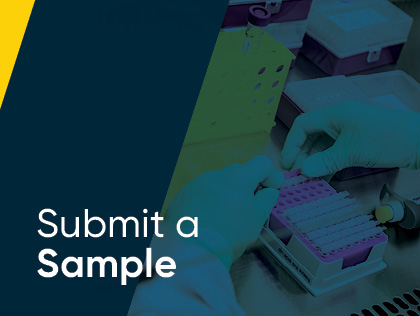NBDC Receives Grant to Boost Applied Research
Tuesday, June 18th, 2024

The National Bee Diagnostic Centre (NBDC) is celebrating a particularly sweet development in the form of a 200K grant from the Natural Science and Engineering Research Council of Canada (NSERC). The grant will facilitate the purchase of a mass spectrometer, a powerful analytical tool will allow the NBDC to expand its teaching capabilities, build its applied research capacity and ultimately, better serve Canadian agricultural producers.
Mass spectrometers offer bee researchers a detailed view of the chemical interactions and substances affecting bees, which is essential for advancing our understanding of their ecology, health, and behavior.
Patricia Wolf Veiga, Scientific Lead at the National Bee Diagnostic Centre, appreciates how this NSERC grant will allow the NBDC to respond to urgent and long-standing industry needs. "Honey quality testing has been in demand for over a decade, and it is of key importance to the beekeeping industry. With the acquisition of these instruments, the NBDC will enhance and expand its areas of applied research and fee-for-service offerings, as it relates to honey and other agricultural products,” she explains.
A little-known fact about honey is that it ranks among the top three most counterfeited foods in the world. Fraudulent honey has a significant impact on beekeeping in Canada in that it drives honey prices down, further stressing the already struggling industry. The addition of the mass spectrometer (MS) will build on the capabilities recently initiated in response to an urgent need for more honey testing in Canada. In 2023, the NBDC and Alberta Beekeepers Commission jointly upgraded the Centre’s services by installing a High-Performance Thin Layer Chromatography (HPTLC) system.
“HPTLC-MS coupling will allow us to take our analyses a step further,” explains Rodrigo Turribiartes, a Research Assistant working on honey testing. “It will provide verification of a compound’s chemical structure with its molecular mass, giving us a better understanding of the honey and products we test. Having this equipment is exciting and it opens so many doors for further research and partnerships.”
The addition of the mass spectrometer also enhances the specialized training available to NWP students and other post-secondary students and researchers. The opportunity for NWP students to work in a state-of-the-art laboratory provides an incredible opportunity to gain hands-on experience using highly specialized equipment to examine data. For Rusha Patel, a second-year NWP student in the University Transfer Bachelor of Science in Biological Sciences program, the hands-on experience provided through the NBDC lab is unparalleled. “I am looking forward to the new learning opportunities made available through this new biotechnology equipment,” says Patel, who is currently working at the NBDC as a Summer Student Lab Assistant.
Stay tuned for news and research opportunities made possible through this NSERC grant in the coming months.













